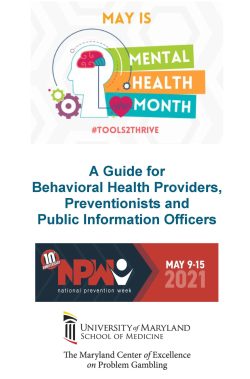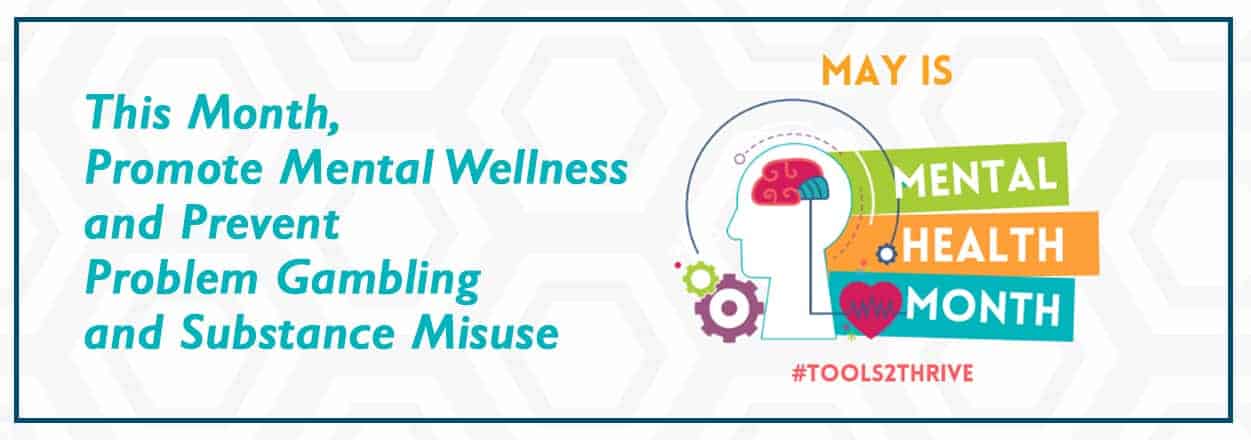A Guide for Behavioral Health Providers,
Preventionists and Public Information Officers
- Reference tools for Mental Health and Prevention
- Social Media Ideas (Hash Tags and Posts)
- A resource listing

This May, in collaboration with the Maryland Association of Prevention Professionals & Advocates (MAPPA), the Maryland Center of Excellence on Problem Gambling (the Center) invites you to join us in promoting Mental Health Month and bringing attention to how addictive behavior (gambling disorder, substance misuse and other addictions) can affect the well-being and recovery of both individuals and families.
This May, we invite you to join us in promoting AWARENESS of mental health; developing PREVENTION messaging to mitigate addictive behavior; and taking ACTION to foster the health and well-being for Maryland residents.
Tools for Mental Well-Being & Recovery
- Visit Local Health Department and Mental Health Agencies for additional resources and help.
- Maryland residents and their families can receive “no cost” screening and assessment for problem gambling related issues.
- Schedule a Mental Health Screening
- Have a Conversation with “someone who has been there” – 1-800-GAMBLER.
- Maintain a balance in all you do
- Practice Wellness mentally and physically.
- Spend time with family and friends who follow wellness behaviors and encourage you to do the same.
National Prevention Week

May is also National Prevention Week, this year being observed May 9-15, 2021. Promoted by MAPPA and the Federal Substance Abuse and Mental Health Services Administration (SAMHSA), National Prevention Week is a public health platform promoting prevention year-round through providing ideas, capacity building, tools, and resources to help individuals and communities make addictive behavior prevention (including substance use and problem gambling) happen every day.
Tools for Youth Prevention of Addictive Behaviors
- Have important conversations with the youth/young adults you care about.
- Choose activities that involve healthy, fun events.
- Learn skills to help cope with stress in healthy ways.
- Join a school or community club.



